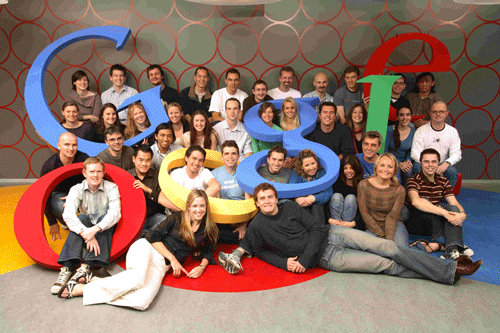
sites.psu.edu/leadership/wp-content/uploads/sites/8069/2015/03/google_AU_team-730285.png
Sadhya Sawhney’s blog on “I or we” depicts the indispensability of team work. It lays down the essence with which the team should work towards its mutual goal. Success of companies, teams and organizations is testimony to the fact that positive results from effective team work is the key to reach newer heights.
Charles Duhigg in The New York Times Magazine writes that Google has set out to build the “perfect team”. He claims that Project Aristotle, a venture taken up in 2012 is the primary reason for the accomplishment. The results after the analysis of the study claimed that it is the “Psychological Safety” which makes the team successful and trustworthy. Psychological safety is a belief that the team or the organisational sectors are perfectly safe for taking interpersonal risks. Psychological Safety also enables the employees to share their feelings with their colleagues while taking calculated risks. It gives confidence to the employees that they would not be subjected to punishment of any kind for speaking out their hearts and contributing the way they believe would be the best for the company. Project Aristotle also found out that when employees discussed their issues (largely corporate and personal/family to some extent), they formed deep relationships with each other which helped them grow as a team.
As learnt in class, the Five Stage Model clearly states the various stages of group development. They are – forming, storming, norming, performing and adjourning. The model when applied in the case of Google and Project Aristotle shows how individuals move from being independent to working independently as team members. Great teams always have a CLEAR purpose, participation and listening, open communication and self –assessment. In practicality too, Google employees have been demonstrating these traits holistically.
In her blog post, Sadhya mentions that in her basketball team, strengths and weaknesses of team members enabled them to build on their efforts and perform well in matches. In my opinion, a great team knows what its strengths and weaknesses are and tries to build more upon that. You never see a team with no weaknesses. I believe, all teams have things that they can improve upon. Identifying these issues is a confident step towards success. So all in all, psychological safety along with identifying and working on weaknesses are the keys to have a great team.
Citations
- Schlossberg, Mallory. “Google Experiment Reveals the Single Most Important Quality for Teamwork.” Business Insider. Business Insider, 27 Feb. 2016. Web. 01 Apr. 2017.
- “The Five Keys to a Successful Google Team.” Re:Work. N.p., n.d. Web. 01 Apr. 2017.